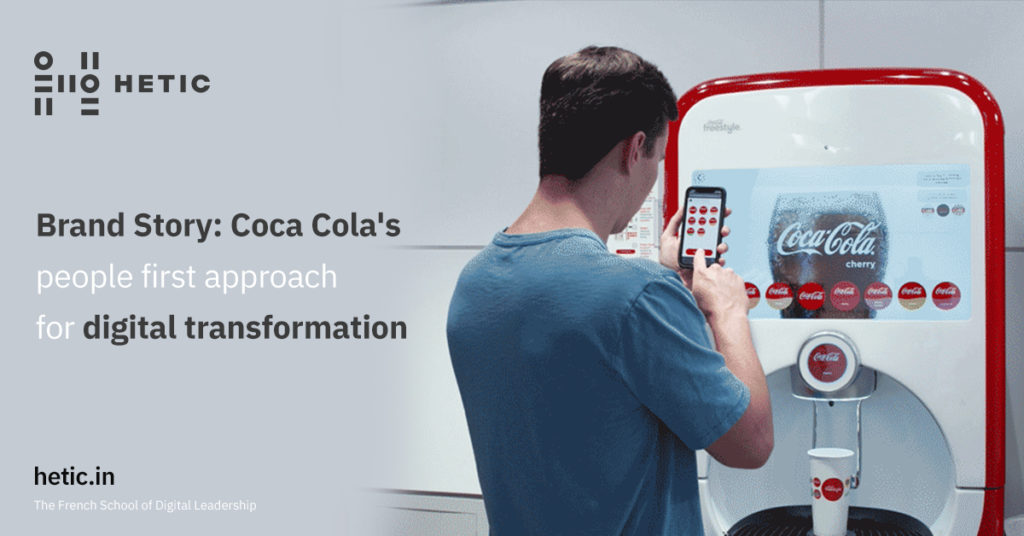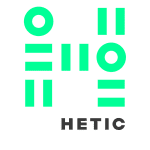
If there is anything truly global, then one of them is definitely Coca-Cola. You can be sure to get one in the farthest corners of the world. How this global brand upped their ante a few years ago with their aggressive 5-year digital transformation journey is reflected via this article. David Godsman, Coca-Cola’s chief digital officer said at an Adobe Summit that ‘We are facing a new world. A digital world, and this is a world that is somewhat unknown to us. It’s a world where we need to learn more about consumers, understand their behavior, their preferences. It’s a world where we need to personalize at scale. And ultimately, it’s a world where we now need to bridge the physical and digital worlds together because our consumers don’t go anywhere without their mobile devices.’
In Coca Cola’s journey of becoming a digital-first business, they identified four crucial areas of focus:
A. Experience transformation
This is about building customer focused, more personalized and relevant experiences for consumers and the retailers who serve them.
B. Operational transformation
This aspect is focused on how to make a company better from inside – with use of data and technology that will help to accelerate and remove processes, ultimately – remove the barriers that exist.
C. Business Transformation
In this focus area, the brand is defined to focus on how to create disruption within the company before the external factors do the same.
D. Cultural transformation
For Coca-Cola, this has been an important transformation focus point, this is about how to change the fabric of a company that has viewed itself as a traditional CPG.
Their leadership team agree that this has been one of the hardest things they have had to undergo as a brand where they are asking their traditional brand marketers, who they mention are brilliant at creating brands and executing campaigns – to become experience makers and think about the world differently.
Read more: Data visualization tools employers are looking for
What did work for the brand here is the scale they work at, a brand that is serving the global population and engages with 18% of the world’s population every single day – gives them an incredible opportunity to take the most advantage of using abundance of data to create personalized experiences.
The Challenge
– The consumer:
The brand knows that all consumers are different, with different preferences and behavior patterns, they all engage differently – via mobile, computer, socially AR/VR and also via voice commands. Godsman was noted to say for this that ‘That’s a strange animal for us because it removes your brand, your packaging, and your point-of-scale capabilities’
Not only they had to learn from their past, the good, the bad and what works along with what didn’t, their storytelling and work – evaluating that consumer is changing and how they have changed so far is only one part of their digital transformation.
Read More: Emerging tech-based environment-conscious start-ups
– The employees:
Another major challenge for the brand is how does a brand with global presence and thousands of employees make this change. The leadership understood that their employees will need to be upskilled and supported, so they can in turn support the transformation process.
In an interview with McKinsey Talks Operations podcast, Coca-Cola’s VP of Commercial product supply, Iain McLaughlin, their Transformative Director, Gigy Philip joined the Director of Reach and Engagement in McKinsey’s London office and discussed on how the brand upskilled their employees as a major part of their digital transformation journey. The key points that came out from their podcast about the people first journey of digital transformation are:
– Digital Academy:
To tackle this huge change within the organization, Coca Cola in July 2021 set up a digital academy to upskill managers and frontline team leaders across operations. This included the brand focusing on sending people to boot camps, go-and-see visits, e-learning modules and more. More than 500 people were given digital skills training in the first year itself and now the program is rolled out to 4,000 employees company-wide. With their digital academy the brand built a three level journey,
a. one with creating awareness about the changes and updates,
b. second around transformation skills and
c. third one around digital and analytical skills.
– Pilot Purgatory:
The leadership team mentioned how they did a lot of research and pre-work to understand the impact of Industry 4.0. While pilots are important and offer you significant learnings, it is also crucial to take the time out and carve out a strategy. A fine example of this is how the first graduates of the digital academy implemented about 20 digital, automation and analytics approaches at ten-plus sites in the brand’s manufacturing network to help boost their productivity and throughput by more than 20 percent.
The leadership pointed out how this was achieved by action based approach and not simply pilot testing. It is also about implementation.
Read more: Tech trends influencing digital marketing 2022
– Customized learning:
Part of the digital academy is also to build customized learning journeys for each of their cohorts. These cohorts built by the brands are a group of roles within the organization – these are based on what kind of learnings they need, their use of these learning amongst other things. These could range from core digital skills to analytics and other agile topics in the area.
– Building awareness and excitement:
Coca-Cola not only built their own digital academy, they in a simpler yet more concrete way entrusted their employees to help them through the process. The brand builds excitement for a difficult change by offering a chance to upskill and continue with the brand, this not only educated the employees but also offered them a sense of belonging and stability.
Read more: Social media management tools in September 2022
How Coca-Cola’s digital transformation aided the brand to connect with its new age customers?
Teaming up with the leading software giant, Adobe, Coca-Cola started a new campaign #CokexAdobexYou that invited customers to create a work of art celebrating the brand, sports, movement, strength and unity using the Adobe Creative tools. This itself got 900+ entries and the campaign is a fine example of how the enthusiasm amongst a niche set of consumers is high for the brand.
Another fine example of their people’s connectivity and personalization via emerging technology is their work in China to personalize the Cola can. They added a layer of augmented reality to each of their cans. These were characters with barcodes, these characters represented a province of China. When a consumer would scan these it would activate the character, i.e., bring it to life, and the story behind it to life when connected with the Chinese internet services like Baidu, Alibaba etc. This was their effort of personalization at a community level.
Read more: Top 10 big data CRM tools
With this successful journey, Coca-Cola continues to be an iconic brand both within their organizational and digital transformation strategy as well as in their brand new outreach and consumer interaction strategies using emerging technology.
For a company in transformation, focusing at both ends- their consumers and employees, they are building strong connections that will last a lifetime. Not only these digital experiences are enhancing their consumers’ experiences, it is also building up the career of their employees and offering them a chance to upskill, learn in the uncertain times – implement their learning via digital strategies and also build brand new impactful campaigns.
Admissions are open
You can download the application form with this form

